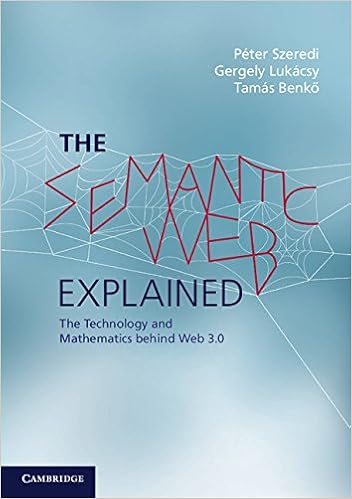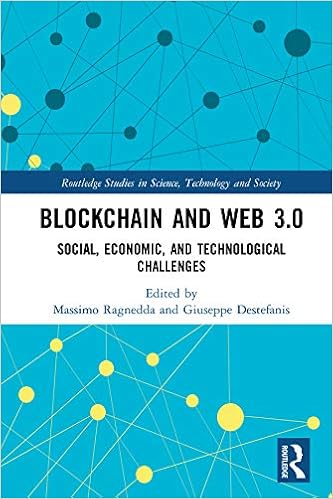Top 10+ Web 3 Books · Understand the Revolution (2024)
Web 3 is the next step in the evolution of the internet. It's a decentralized, more democratic platform that will change the way we interact online.
Web 3.0 is the imminent internet iteration in which websites and apps will be processing information in a smart and human-like way. This will be enabled by technologies such as machine learning, decentralized ledger technology, Big Data, blockchain, and more.
Users and machines will interact with data, but programs will also require a conceptual and contextual understanding of relayed information. With that, Artificial Intelligence and semantic web will be its cornerstones. To help you gain more knowledge about Web 3 tokens, we recommend the Web 3 books below. They talk about this new internet era and all that pertains to it.
Where to Start Web 3 and Why Is It Special at All?
Web 3 refers to the third generation of the World Wide Web, characterized by the use of decentralized technologies such as blockchain and smart contracts, and the aim of providing a more equitable and open web experience.
The key difference between Web 3 and previous generations is its decentralized architecture. Unlike the centralized nature of Web 1 and 2, where power is concentrated in the hands of a few large tech companies, Web 3 is built on a decentralized network of nodes, where power is distributed and controlled by users. This results in a more secure and transparent web, where users have more control over their data and online identity.
Another important aspect of Web 3 is the use of smart contracts, self-executing agreements with the terms of the agreement directly written into code. This allows for the automation of trust and reduces the need for intermediaries.
Web 3 also aims to enhance user privacy and security, with the use of encryption and secure protocols such as the InterPlanetary File System (IPFS), which allows for decentralized storage and sharing of data.
The following books will extend your knowledge how this new era will work in the reality, in the upcoming years.
What Are The Top Web 3 Books?

Marketing in Web 3.0, by Simon Kingsnorth (2024)
This marketing book aims to be a comprehensive guide for navigating the future of digital marketing. It delves into the world of web 3, the metaverse, and artificial intelligence, explaining these emerging technologies and their potential impact on marketing strategies.
The book offers a roadmap for marketers to not only understand the current landscape but also capitalize on its opportunities. Kingsnorth explores various web3 applications like gamification and immersive experiences, while acknowledging potential risks. By providing a clear understanding of the evolving digital landscape, Marketing in Web 3.0 equips readers to transform their marketing strategies and connect with customers in innovative ways.

Web3: Charting the Internet's Next Economic and Cultural Frontier, by Alex Tapscott (2023)
In Web3, Alex Tapscott, co-author of the bestselling Blockchain Revolution, introduces readers to the transformative potential of the next Internet revolution. This new era, which Tapscott terms as the “Read-Write-Own Web,” is marked by a shift from the limited interactivity of the early Internet (Read-only Web) and the collaborative opportunities of the subsequent phase (Read-Write Web) to a more decentralized and secure online environment.
This evolution addresses the growing concerns over cyberattacks, data breaches, and online privacy, as Web3 empowers individuals to have control over their own identities and enables secure peer-to-peer transactions. The foundation of this new internet era lies in blockchain technology, the same technology that underpins Bitcoin. Tapscott suggests that Web3 is set to revolutionize business and society in a manner comparable to the advent of double-entry bookkeeping in the Middle Ages.

The Future Internet: How the Metaverse, Web 3.0, and Blockchain Will Transform Business and Society, by Bernard Marr (2023)
The Future Internet is a discussion on the technologies driving the transformation of the internet, including blockchain, augmented reality (AR), and more. The author explores the impact these technologies will have on various sectors such as sports, retail, energy, healthcare, education, and others. The book also provides strategies for individuals to leverage these changes, the potential impact of blockchain and AR technologies, and techniques for getting involved in the new internet with a focus on participation and immersive experiences.
This book on web 3 and blockchain is aimed at executives, managers, and business leaders looking to prepare for the future digital economy.

The Rise of the Metaverse: An essential guide to Web 3.0, by Jianing Yu and Ciara Sun (2023)
This book highlights the connection between metaverse and web 3. Metaverse is a virtual-reality space where users can interact with a computer-generated environment and others.
The authors predicts that the next ten years will be the golden era of the metaverse, and it will become a central place for people's life, entertainment, social interaction, and work.
The book outlines six important trends in the metaverse era, bringing together digital and physical worlds, and leading to a migration of social and economic activities to the metaverse. The authors argue that the metaverse can eliminate many physical-world constraints, allowing individuals to achieve a better self and maximize their own value.
After reading this book you will have better understanding the context of web 3, and it provides guidance on how to take advantage of the metaverse era.

The Spatial Web, by Gabriel René (2019)
Think about the popular films that paint a picture of the futuristic world. A world where robots, holograms, digital transactions, and smart devices are synchronized. A world that combines physical, biological, and virtual aspects. This is the picture this book paints and goes to show will soon no longer be fiction- the inevitable world. But what is even better is that it teaches you how you can leverage and get ready for it.
You will discover how potent computing technologies are merging things. You will also learn how Virtual and Augmented Reality will soon allow people to overlay their imaginations and information across the world. As you read, judge whether the new technologies will be aligned with people’s core values.
The book shows that web 3 may be viewed as inevitable, but everyone involved, including governments and creators, will need to do more. It is a roadmap to the future and a challenge to us to consider the significance of today’s technological choices as we get into a transformed world, web, and reality.

Web3: What Is Web3? Potential of Web 3.0, by Patrick Ejeke (2022)
As blockchain technology advances, so does the potential for a web 3 economy. This new economy is based on the principles of decentralization and transparency. In order to understand how it works, we need to first take a look at the key concepts behind it.
In this beginner friendly book you will read about business models connecting to the key concepts of web 3, and what options this fresh approach holds. As we continue to move further into the age of web 3, it's important that we take the time to learn about the different business growth opportunities and how marketing will evolve in the age of web 3.

BlockChain 2035, by Jared Tate (2019)
If you want to know about the future and make wise decisions to impact it, then you must read this book. Why? Because some of the most rapid, useful, and explosive world history changes are coming.
The information and monetary systems of the late 20th and early 21st centuries will face individual natural limitations and interruptions in years to come due to the swiftly upcoming technological innovation. This will be the remaining part of the 21st century, and it will be a time of crisis.
By the time it’s the mid-2020s, the whole world will have been thrown into a state of confusion by the collapse of the sovereign debt bubble. Simultaneously, corporations and nation-states will be challenged by the limitations of a significantly insecure internet. This is because emergent technologies and threats will re-examine the foundation of commerce and governance.
The key to this evolution is blockchain technology, which provides opportunities to re-engineer internet networks, monetary tactics, systems, and devices. It will be a competition and power tool.

Token Economy, by Shermin Voshmgir (2020)
Token Economy outlines the primary web 3 building blocks, including user-centric digital identities and cryptography. It gets into details about web 3.0 applications such as smart contracts. The last two sections mainly highlight and discuss web 3 tokens as the atomic units for web 3. They explain the significance of money and properties and also outline the trendy Defi.
Explore the use cases like an asset, privacy, social media, purpose-driven, and BAT tokens and the role the Central Bank Digital Currencies play. It is now pretty easy to create tokens but the understanding of token applications remains significantly vague.
The book also summarizes the existing knowledge regarding blockchain networks and other web 3.0 backbones. It highlights the socio-economic impacts of Web3 applications on money concepts, economics, DeFi, and governance.
See how Bitcoin is a blockchain network, and how the Bitcoin token can be viewed as the currency of a distinguished Internet tribe.

Blockchain Wars, by Evan McFarland (2021)
The headlines for today’s technologies mainly talk about Web3, cryptocurrency, and bitcoin. At the same time, they separately make routine mentions of Big Tech’s censorship, microtargeting, and antitrust. But, in between these topics is a hidden war happening between drivers of the Internet of tomorrow.
It will result in fortune controllers for individuals, corporations, institutions, and governments. The foundation of this future is the blockchain concept.
This book features and talks about the web 3 structure, digital governance, futuristic details about privacy, the Internet of Things supply chains, and financial infrastructure. It has details of the history of internet protocols and discusses organizational transparency and decentralized autonomous organizations.
Readers learn about the inner workings of bold blockchain finance, data management, and industrial space solutions. The book also details the blockchain technology divisions that are and are not components of an internet paradigm shift. Get to see how being governed works digitally and why it can be the builder or breaker of blockchain technologies.

The Semantic Web Explained, by Péter Szeredi, Gergely Lukácsy, & Támás Benkő (2014)
The Semantic Web is the modern research and development era of computer science. Its aim is to ease how computers process large amounts of web information and also larger databases. The Semantic Web achieves this by enabling computers to read and also grasp what relayed information means.
This book primarily talks about the Semantic Web and its associated topics. It is written by authors who are well versed with the Semantic Web, having been its teachers. They get into details about the theoretical issues that surround the Semantic Web. Additionally, they also talk about its practical issues such as algorithms, details about the implementation, and ideas on how to optimize it.
To help you better understand the concept, there are also various examples and exercises. There is now an overlap with Big Data, where it refers to the world of web pages, but this book gets into these details too.

Blockchain and Web 3.0, by Massimo Ragnedda (2019)
When you think about blockchain, don’t only think about bitcoin and cryptocurrencies. Instead, view it as a revolutionary and disruptive technology that will greatly impact multiple living aspects. This technology’s revolutionary power can be compared to the revolution generally brought about by the World Wide Web and the internet.
Blockchain technologies can be perceived as an introductory way of sharing value just like the internet is seen as a tool to share information.
This book fills the gap that exists about how we understand blockchain technologies by discussing these new technologies. It explains how they can be disruptive and also highlights the possible consequences of the disruptions; technological, social, legal, and economic.
These perspectives have been compared previously but at the same time underemphasized. This has resulted in a poor understanding of decentralized technologies. The book also underlines the opportunities and risks that come about due to blockchain technologies and the upcoming web 3.0.

Web 3.0 Startups, by R. L. Adams (2013)
You need to check out Web 3.0 Startups if you are an entrepreneur getting started or you need to understand marketing in today’s web-based world. It is the guide you need to navigate the overcrowded web.
The internet is remarkably evolving and it is very different from what it was years ago and we can thank Google for that. This is a company that has shaped the web and the ways through which we look for and find answers to different questions online. The online search has also changed over time and this has ushered in a new web era, the web 3.0 era.
In Web 3.0, you are only good if you can remain relevant. You do not need to only address people’s individual and relevant desires as they find you through the organic search. Through social recommendations, you also need to address different group aggregates. That is why you must understand online marketing strategies for your business to even be recognizable on the web.
Final Thoughts on the top Web 3 books
Web 3.0 will be a big deal in the foreseeable future since almost everything will depend on it. To understand and be prepared for this development adequately, our list of web 3 books will come in handy. If you want to learn more about the web 3 economy, check our best NFT book or blockchain technology book selection.
My profession is online marketing and development (10+ years experience), check my latest mobile app called Upcoming or my Chrome extensions for ChatGPT. But my real passion is reading books both fiction and non-fiction. I have several favorite authors like James Redfield or Daniel Keyes. If I read a book I always want to find the best part of it, every book has its unique value.







